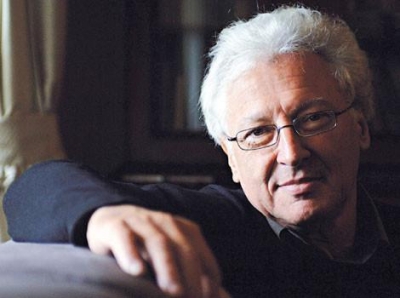Commentary
Rhetoric has a bad name. And for good reason. Not only does it suggest insincerity and verbal manipulation, it also has a strong odour of scholasticism about it. It is with some trepidation, therefore, that I turn to ancient rhetoric to urge upon you two terms I find useful in thinking about contemporary Australian poetry. I will make it as palatable as I can and hope it doesn’t choke going down. Whether it is nourishing or not, I leave you to decide.
... (read more)On the second last day of the weeklong Poetry Africa 2001 international festival in Durban, South Africa, an interview with me appeared in one of the national newspapers. The text presented me as a returned exile. I was asked questions such as: ‘Have you lost your South Africanness, or do you still need it?’ Since my return to South Africa – I was last here in 1995, just after the first ‘free and fair’ election – I’ve been asked about my feelings towards South Africa and Australia. The questions are always intentionally superficial: there’s a right and a wrong answer. I’ve found that usually the best response is evasion or, better, a lie. In their questioning is a not so subtle politics of decorum: Are you a foreigner? If you are, mind your manners.
... (read more)There are watchdogs and there are lapdogs. Watchdogs are alert. At the slightest movement, they growl. When they bite, it hurts. Lapdogs are alert – to their master’s moods.
... (read more)Purists and lawyers, sit down. You may need smelling salts or whisky, according to taste. Ready? All right. I predict that your children, or perhaps your children’s children, will read in grammar textbooks that they is the third-person singular pronoun when referring to a person, as well as being the third-person plural pronoun. It will be confined to an animal or a thing.
... (read more)I’m not keen to be at this dinner party at Carol’s. I find her hard to take sometimes, with her endless stories about her life in Maningrida. Her husband is away. Instead, there’s Graham, who’s been here nearly ten years; Laurie, who has visited the community from time to time since the 1970s; and Lisa, who is a few years older than me and who runs the art c ...
You are going to Singapore, they said. Yes, but which way? was the natural response. If I’m flying to the island-city, my flight should take in something with a more exotic range of scenery, perhaps even a sniff of nature. Birds and stuff. So the painter and I decided on Portugal: and why not throw in Spain? My own travels had never taken me further than Catalonia, which so determinedly is, and is not, Spain. Off, then, for the long flight west with good books and red wine; en route I looked down on Cairo for the first time in my life. The Ptolemaic map of lights spread out as though forever.
... (read more)‘We’ve given Ayers Rock back to the Aborigines!’ Perhaps I remember those words so clearly because a friend spoke them to me over the telephone when I was in England, surprised almost daily at the reforms of the Whitlam government and at the international interest they excited. Years later I reflected on the meaning of that ‘we’. Had he said the same words to an English person, the meaning of it would have been different. Addressed to me, that ‘we’ wasn’t so much a classification that included or excluded me: it was an invitation to be part of a community whose identity was partly formed by its relation to Australia and its past and by its preparedness to accept responsibilities for what head been done to the Aborigines – at that time (before we knew about the stolen children), the taking of their lands and desecration of their sacred places. Had I thought about it, that would partly have answered the question I did ask him. ‘What does giving it back mean?’ He couldn’t say. In fact no one I asked could. No one was interested. Everyone was heartened by the generosity expressed in the gesture and enthusiastic in their hopes for a new era.
... (read more)It’s usually said that Australians are uninterested in the metaphysical. Where in America the lines between the secular and religious are notoriously blurred, not least in their politicians or sporting heroes invoking God on almost every conceivable occasion, Australians by contrast are held to be a godless lot, their mythologies entirely secular in form and meaning. God is rarely publicly invoked, except by ministers of religion whose particular business it is duly to do so.
... (read more)On the last day of the Melbourne Writers’ Festival, I attended a session titled ‘Hope and Wright Remembered’, a presentation intended as a memorial for those two well-known figures of Australian poetry, A.D. Hope and Judith Wright. For a panel on poetry, it was exceptionally well attended, the Merlyn Theatre being nearly full. I had the impression that the session would be one of two things: either a commemoration ceremony for the recently departed, in which those left behind would eulogise the Great Man and the Great Woman, or it would be a chance for criticism in both its affirmative and condemnatory modes, a chance to make claims either for or against the poets’ work.
... (read more)
